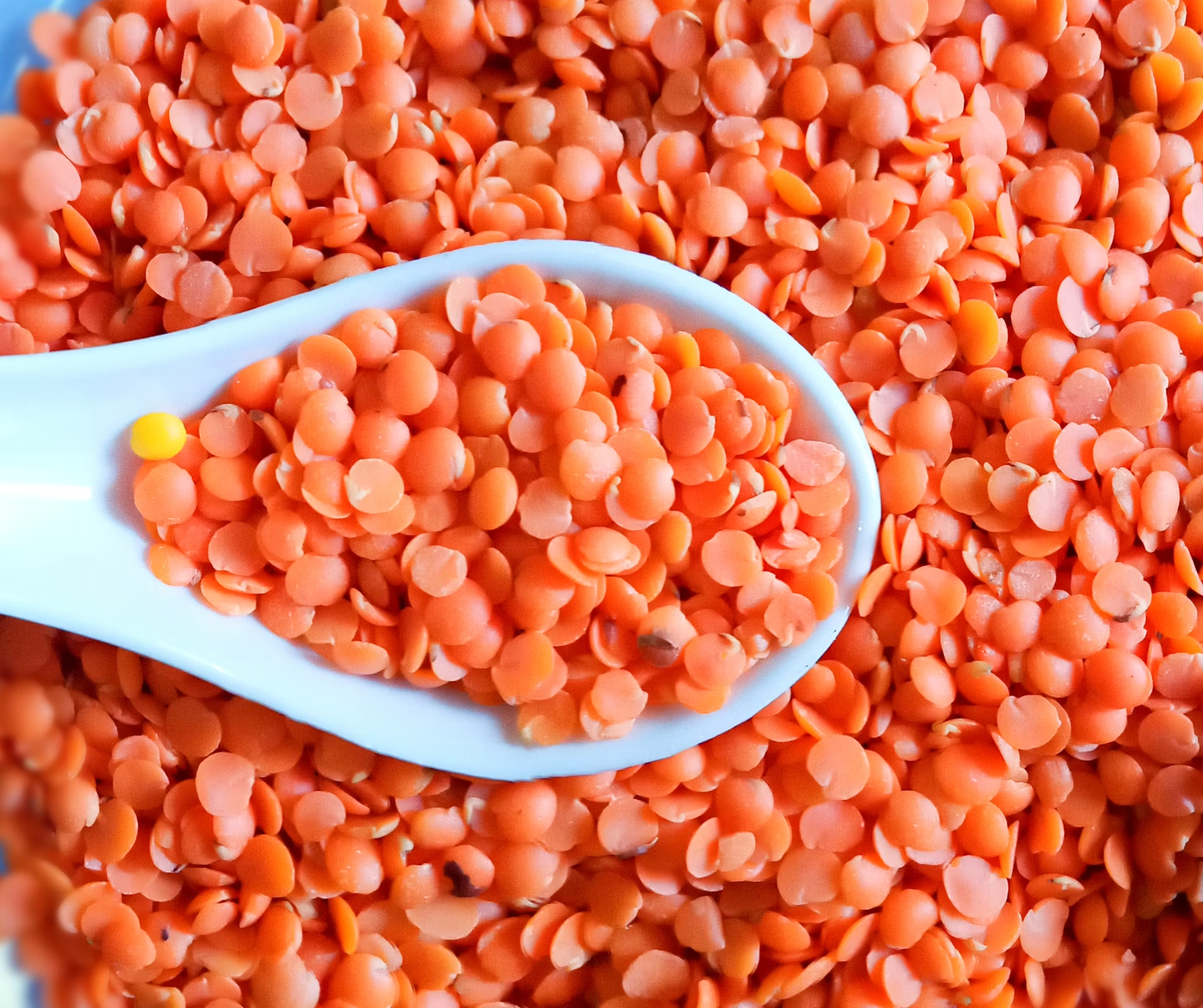How a Plant-Based Diet Can Help Reduce Inflammation Naturally

Chronic inflammation is the root cause of many chronic health issues, from heart disease to arthritis. While medications can help manage symptoms, they often come with side effects. The good news is that lifestyle changes, especially adopting a plant-based diet, can naturally reduce inflammation and improve overall health. In this article, we’ll explore how a plant-based diet can combat inflammation and enhance your well-being.
Understanding Inflammation and Its Impact on Health
Inflammation is your body’s natural response to injury or infection. While short-term inflammation helps protect and heal your body, chronic inflammation can lead to severe health issues, including:
- Heart disease
- Type 2 diabetes
- Autoimmune disorders
- Digestive conditions like ulcerative colitis
What Causes Chronic Inflammation?
Several factors contribute to persistent inflammation, such as:
- Poor diet (high in processed foods and sugars)
- Sedentary lifestyle
- Stress
- Environmental toxins
Reducing inflammation through lifestyle changes, including a plant-based diet, can prevent and even reverse some of these chronic conditions.
The Science Behind Plant-Based Diets and Inflammation
How Can Eating Plants Transform Our Health?
Plant-based diets emphasize whole, minimally processed foods like fruits, vegetables, legumes, nuts, and seeds. These foods are rich in antioxidants, vitamins, and minerals that help combat inflammation. Unlike processed and animal-based foods, which can promote inflammation, plants provide the nutrients your body needs to heal and thrive.
Research published studies show that plant-based diets lower markers of inflammation, such as C-reactive protein (CRP). This marker is commonly elevated in conditions like cardiovascular disease and metabolic syndrome.
Polyphenols and Inflammation Reduction
Polyphenols are a diverse group of plant-based compounds known for their potent anti-inflammatory properties. These molecules interact directly with signaling pathways in the body to reduce inflammation at the source. By inhibiting the nuclear factor-kappa B (NF-κB) pathway, polyphenols reduce the production of pro-inflammatory cytokines such as interleukin-6 (IL-6) and tumor necrosis factor-alpha (TNF-α). Additionally, polyphenols act as antioxidants, neutralizing reactive oxygen species (ROS) and preventing oxidative damage that exacerbates inflammation. Studies have shown that diets rich in polyphenols are linked to lower levels of systemic inflammation, improving outcomes in conditions like cardiovascular disease and arthritis.
Bioactive Alkaloids and Enzymatic Regulation
Certain alkaloids found in plants are bioactive compounds that regulate inflammatory enzymes in the body. These compounds inhibit the activity of cyclooxygenase (COX) and lipoxygenase (LOX), enzymes responsible for producing inflammatory mediators such as prostaglandins and leukotrienes. By suppressing these pathways, alkaloids reduce both acute and chronic inflammatory responses. Moreover, alkaloids modulate cellular responses by affecting ion channels and receptors involved in inflammation, providing a broad-spectrum approach to managing inflammatory diseases. Research suggests that these compounds can lower markers like C-reactive protein (CRP), further validating their anti-inflammatory potential.
Antioxidants and Cellular Protection
Antioxidants play a critical role in inflammation management by addressing oxidative stress, a key driver of chronic inflammation. These compounds neutralize free radicals, unstable molecules that damage cells and tissues, triggering inflammatory responses. In addition to directly scavenging free radicals, antioxidants upregulate the production of endogenous defense enzymes such as superoxide dismutase (SOD) and catalase. By enhancing the body’s natural antioxidant systems, these compounds prevent the oxidative damage that leads to chronic conditions such as metabolic syndrome and neurodegenerative diseases. Antioxidants also support mitochondrial function, ensuring cellular energy production without generating excess ROS.
Dietary Nitrates and Vascular Health
Dietary nitrates, a group of naturally occurring compounds, are increasingly recognized for their anti-inflammatory effects, particularly in vascular health. Once consumed, nitrates are converted into nitric oxide (NO), a molecule that relaxes blood vessels and reduces inflammation in the endothelium (the lining of blood vessels). NO inhibits the adhesion of inflammatory cells to vessel walls, preventing the buildup of plaques that contribute to atherosclerosis. Additionally, dietary nitrates improve blood flow and oxygen delivery to tissues, reducing hypoxia-induced inflammation. These properties make nitrates particularly beneficial for conditions like hypertension and other cardiovascular disorders.
Best 5 Vegan Anti-Inflammatory Foods
1. Turmeric
Turmeric contains curcumin, a compound known for its strong anti-inflammatory effects. Studies show that curcumin blocks inflammatory pathways and reduces the production of inflammatory molecules. Turmeric has been a staple in South Asian cuisine and traditional medicine for thousands of years, particularly in India. It is a key ingredient in curries and spice blends like garam masala. Turmeric is also central to Ayurveda, where it has been used to treat a variety of conditions, including inflammation, digestive issues, and skin problems. Historical texts like the Charaka Samhita (a foundational Ayurvedic scripture) detail its therapeutic benefits. The spice was also used in ancient Southeast Asian cultures, where it played a role in rituals and as a natural dye.
2. Leafy Greens
Spinach, kale, and Swiss chard are packed with antioxidants like vitamin C, which help reduce inflammation. They’re also rich in fiber, supporting gut health and lowering inflammatory markers. Leafy greens have been cultivated and consumed for millennia in Mediterranean, African, and East Asian cultures. In the Mediterranean region, greens like spinach, kale, and chard have long been integral to dishes like spanakopita and stews. In East Asia, greens such as bok choy and water spinach are key components of stir-fries and soups, reflecting their importance in cuisines from China, Japan, and Korea. Indigenous African communities have traditionally consumed amaranth and collard greens, incorporating them into nutrient-dense porridges and stews.
3. Berries
Blueberries, strawberries, and blackberries are rich in anthocyanins, compounds that reduce oxidative stress and inflammation. A diet high in berries can improve cardiovascular health and brain function. Berries have been a significant part of Northern European, Indigenous American, and Siberian cultures. In Scandinavia and Russia, wild berries like bilberries and cloudberries were traditionally gathered and consumed fresh or preserved for winter months. Native American tribes used blueberries, cranberries, and blackberries as staple foods, often incorporating them into pemmican (a mix of dried meat and berries). These berries were not only a dietary staple but also valued for their medicinal properties.
4. Walnuts
Walnuts are an excellent source of omega-3 fatty acids, which have been shown to lower CRP levels. Regular consumption supports heart health and reduces systemic inflammation. Walnuts have been cultivated and consumed in Middle Eastern, Mediterranean, and Central Asian cultures for thousands of years. Ancient Persians referred to walnuts as the “royal nut” and used them in dishes like baklava. Walnuts were also a key ingredient in Greek and Roman cuisine, appearing in sauces, breads, and desserts. In Central Asia, walnuts were part of traditional diets, and forests of wild walnut trees have existed in regions like Kyrgyzstan for centuries.
5. Ginger
Ginger’s anti-inflammatory properties come from its active compounds, gingerols and shogaols. Research suggests that ginger can reduce muscle pain and improve symptoms of arthritis. Ginger has been a cornerstone of Asian and Middle Eastern culinary and medicinal traditions for over 5,000 years. In China, ginger has been used in both food and Traditional Chinese Medicine (TCM) for its warming properties and ability to treat colds, nausea, and digestive issues. Indian cuisine incorporates ginger in curries, chutneys, and masala chai (spiced tea). The spice was also highly prized in the ancient Middle East, where it was used to flavor dishes and beverages and traded extensively along the Silk Road.
Read a detailed article about: Benefits of Vegan Eating
How to Start a Plant-Based Anti-Inflammatory Diet
Step 1: Transition Gradually
If you’re new to plant-based eating, start by incorporating one plant-based meal per day. Gradually increase the proportion of fruits, vegetables, and whole grains in your diet.
Step 2: Focus on Whole Foods
Avoid processed plant-based foods like vegan cookies and chips. Instead, prioritize whole foods that are nutrient-dense and minimally processed.
Step 3: Meal Prep for Success
Plan and prepare your meals ahead of time to ensure you have healthy options available.
Immediate and Long-Term Benefits of a Plant-Based Diet
Immediate Benefits
- Reduced bloating and improved digestion.
- Better energy levels.
- Clearer skin.
Long-Term Benefits
- Lower risk of chronic diseases like heart disease and diabetes.
- Improved cognitive function.
- Enhanced immune system.
How Long Does It Take to See the Benefits?
While some benefits, like improved digestion, can be felt within days, it may take weeks to months to see significant changes in blood markers and disease symptoms. Consistency is key.
Plant-Based Diet for Specific Chronic Conditions
Ulcerative Colitis
A plant-based diet rich in fiber can help manage symptoms of ulcerative colitis by supporting gut health and reducing inflammation. Foods like oats, bananas, and cooked vegetables are gentle on the gut and promote healing.
Diabetes Management
Switching to a plant-based diet has been shown to improve insulin sensitivity and lower blood sugar levels. A study published in Diabetes Care found that individuals on a plant-based diet experienced significant reductions in HbA1c levels.
Global Results of Switching to a Plant-Based Diet
Countries where plant-based diets are prevalent, such as the Mediterranean and Blue Zones, report lower rates of chronic diseases and longer life expectancy. These diets emphasize fresh, whole foods and minimize processed and animal-based products, showcasing the power of nutrition in promoting health.
Okinawa, Japan
Okinawa is often called the “Land of the Immortals” due to its high number of centenarians. The traditional Okinawan diet is largely plant-based, focusing on sweet potatoes, tofu, bitter melon, and seaweed. These foods are rich in vitamins, minerals, and antioxidants that combat inflammation and support cellular health. The diet also emphasizes moderation, with the practice of “Hara Hachi Bu”—eating until 80% full—which reduces calorie intake and promotes longevity.
Sardinia, Italy
Sardinia is a Mediterranean island where plant-based eating plays a key role in the longevity of its population. The diet is rooted in whole grains, legumes, vegetables, and olive oil, with moderate amounts of goat cheese and fish. A cornerstone of Sardinian life is the high intake of beans like chickpeas and fava beans, which are rich in fiber and protein, promoting heart health and reducing inflammation. Their lifestyle is also intertwined with physical activity and strong social connections, enhancing both physical and mental well-being.
Nicoya Peninsula, Costa Rica
The Nicoya Peninsula is home to one of the highest concentrations of centenarians in the world. The diet here is heavily plant-based, featuring beans, squash, corn tortillas, and a variety of tropical fruits. These foods provide a wealth of nutrients, including antioxidants and fiber, that lower chronic inflammation and support gut health. Additionally, Nicoyans consume foods rich in magnesium and calcium, which contribute to bone health and longevity. Their lifestyle also includes outdoor activity and a deep sense of community, reinforcing their healthy habits.
Conclusion
Reducing inflammation naturally is possible with the right dietary choices. A plant-based diet not only lowers inflammation but also supports overall health and well-being.
With the Lx app, you can access evidence-informed lifestyle interventions ideas that reverse chronic conditions naturally. Join the movement and take control of your health today.
